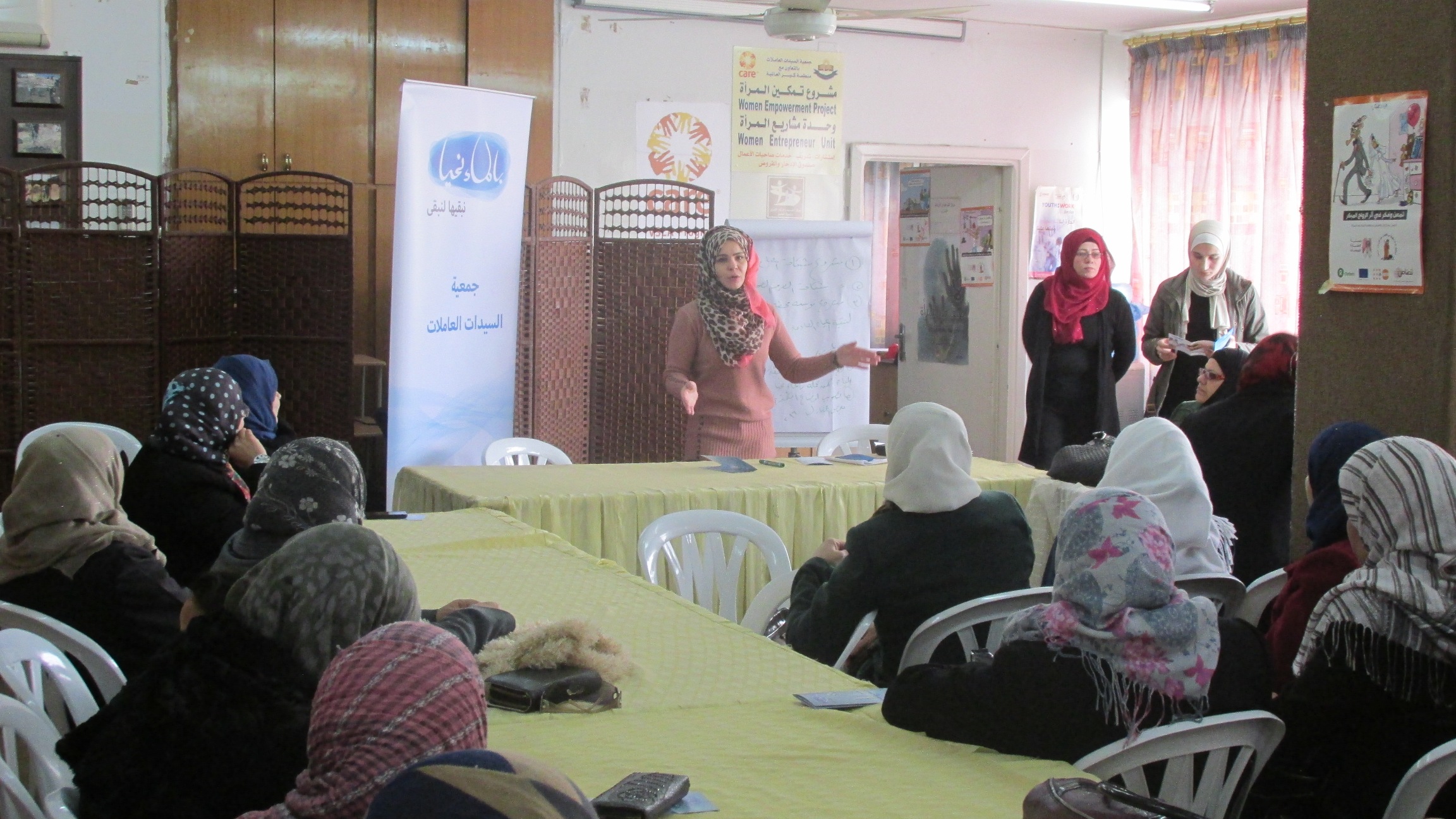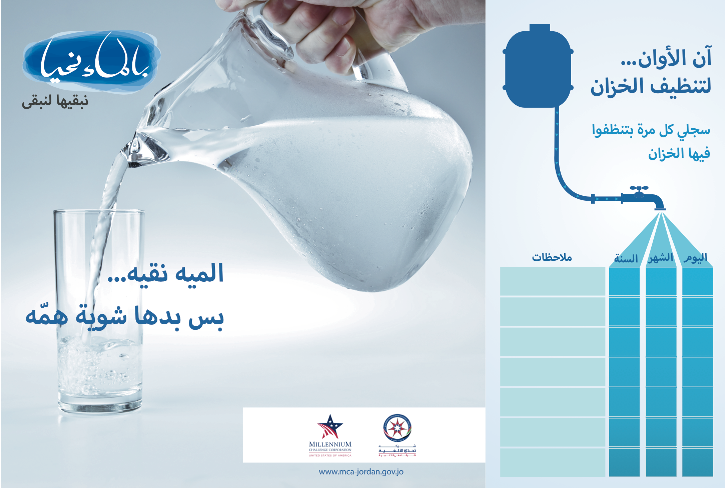
Part of the water conservation campaign is being carried out by local women's organizations, who hold training sessions with women—the primary users of household water—and men.
In Zarqa, the lay women who teach the tenets of Islam will deliver a more earthly message: Saving water is good for your family and good for your country.
Water conservation is critically important in Jordan – one of the driest countries on earth – and MCC’s $275 million Jordan Compact is helping the country use its scarce resources more efficiently. A critical component of our five-year compact is spreading the word about how to save water in the home.
"I've never thought of water management this way,” said Aysha Ali of Zarqa. “The teachings of Islam are telling us what behaviors we should avoid when consuming water in order to stay healthy. For example, it says not to litter in still water and not to over consume, even if the source is from a running river.”

An image from MCA-Jordan's public education campaign on water conservation.
Lay women preachers, known as waethat, play an important role in getting the message out among women, who often oversee their family’s water usage in many Jordanian households. By visiting mosques in Zarqa and Russeifeh, the waethat have conducted almost 200 educational sessions, reaching 100 mosques in their first four months of outreach.
"It's impressive how the women interact with this subject during the sessions,” preacher Sana’a Nassir said. “Women ask us different questions about water conservation techniques, tell us how they managed their in-house water after attending the sessions, and do a very good job spreading the word among their social networks."
The conservation program has had great success, and the waethat have already exceeded their initial target of 160 sessions. They expect to conduct 600 sessions by March 2016, according to MCA-Jordan.

